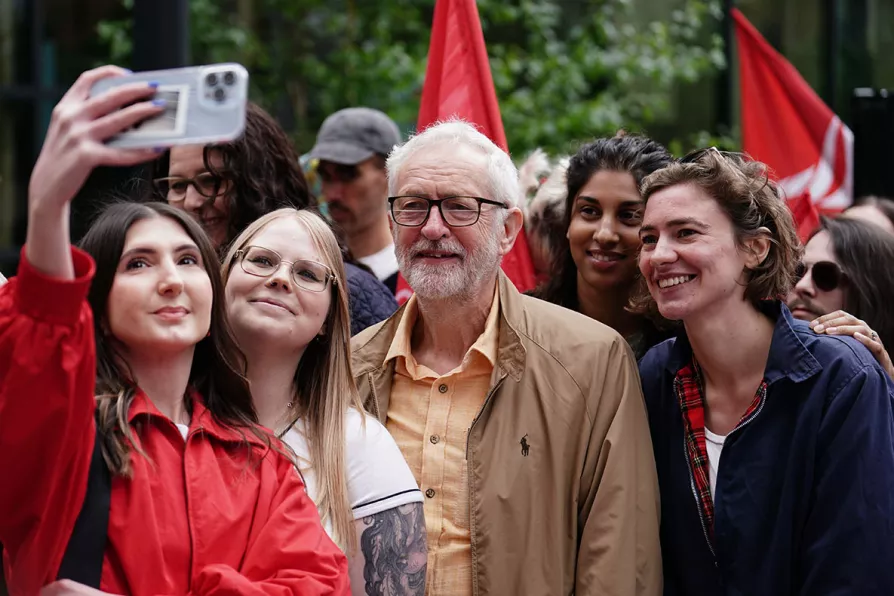John Wojcik pays tribute to a black US activist who spent six decades at the forefront of struggles for voting rights, economic justice and peace – reshaping US politics and inspiring movements worldwide

 Former Labour leader Jeremy Corbyn (centre) has his picture taken with St Mungo's workers protesting outside the homeless charity's head quarters in Tower Hill, London, as they begin a month long strike over pay. Picture date: Tuesday May 30, 2023
Former Labour leader Jeremy Corbyn (centre) has his picture taken with St Mungo's workers protesting outside the homeless charity's head quarters in Tower Hill, London, as they begin a month long strike over pay. Picture date: Tuesday May 30, 2023
THANK YOU to the Morning Star for regularly printing articles of hope, determination and belief in a better society and a better world.
Yesterday morning I announced my independent candidacy for Islington North in the general election.
Today I’ve not long returned from a daily visit to a local cafe, and I spoke to many residents as I made my way to and from the cafe. I was delighted to receive many offers of support, and congratulatory messages for our campaign, and expressions of hope that we will offer something very different from other mainstream parties.

From summit to summit, imperialist companies and governments cut, delay or water down their commitments, warn the Communist Parties of Britain, France, Portugal and Spain and the Workers Party of Belgium in a joint statement on Cop30

If we can tackle the big issues, like delivering decent public services and affordable state-built and owned housing by making the richest pay a fair amount of tax, Labour can win back the trust and support of the electorate, argues ANDY McDONALD MP











